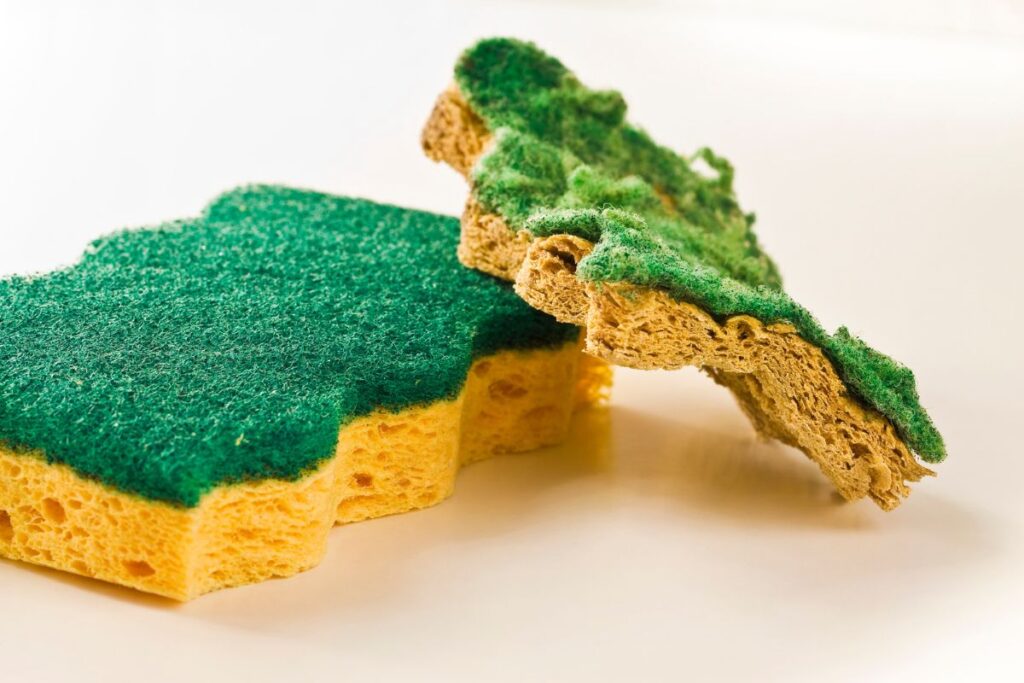Once dishwashing sponges have had their day, the first reflex is to throw them in the garbage can. However, old sponges have a little-known use in the garden, especially during the summer months.
While waiting for the sun to show its face in certain regions of France, gardeners, professional and amateur alike, are preparing the ground for this summer. And this little kitchen and bathroom essential could be just what you need.
It’s your dishwashing sponge. Generally speaking, synthetic polyurethane sponges don’t last long. When they crumble, it’s time to get rid of them and change them.
But what could be better than reusing your old sponges in the garden rather than throwing them in the garbage can? As summer approaches, sponges can be very useful for keeping your plants well hydrated.
In summer and winter alike, sponges are your garden’s allies.
The first trick is quite simple. Simply place a used sponge in the bottom of a pot. Before doing so, be sure to disinfect your sponge. Plants don’t like dirty dishwater. To disinfect your sponge, place it in a disinfectant for 1 hour. Then rinse well. Next, cut your sponge into small pieces.
Once you’ve done this, you can place the pieces of your used sponge at the bottom of your pot. Then add potting soil on top and the plant of your choice. The sponge helps maintain an optimal level of humidity for the plant roots. It’s very effective in hot weather, or when you’re away from home, to keep your plants regularly hydrated.
You can also place your sponge under your pots. In the event of over-watering, the sponge will absorb the excess water. This will prevent plant roots from rotting and prevent insufficient drainage.
Finally, your old sponges can also come in handy in winter. When frost threatens plants, sponges act as protectors. Once again, all you have to do is cut your sponge into small pieces and spread them around the base of your plants or covering the roots.
So now you have no excuse when your disposable sponges become obsolete. Give them a second life with these sustainable recycling solutions.
Yet few of us get rid of them, and most of us continue to use used sponges. In fact, for a healthier use, we’d need to use at least 52 sponges a year, or one a week, given their rapid degradation. An ecological aberration, isn’t it?
But if that were the case, recycling these used sponges for your garden would be a great alternative.

